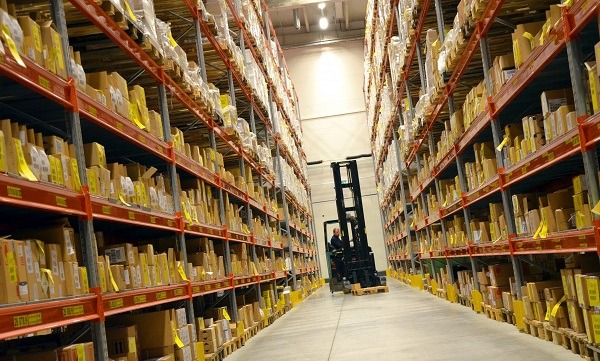Warehouses have become an important part of many businesses today. In fact, there are middlemen businesses whose job is mainly to offer warehousing and logistics services to their clients. But if you think hiring middlemen will just mean extra cost and you want to streamline your logistics process, it’s time that you contact a reputable container unpacking service provider. As a business owner, especially one in the retail or product business, knowing the different types of warehouses can help you choose the one that works best for your product needs. Over the years, warehousing has developed to suit different kinds of products. Now, warehouses have climate-controlled features, refrigerators, and more to keep products intact. Logistic companies in cooler regions also offer other features and advantages to improve product handling. If you are looking for a warehousing solution that meets your business needs, read on. Below, we discuss what to look for in a warehouse and the different types of warehouses to choose from.
What to look for in a Warehouse
To the average consumer, a warehouse is just a place where goods are stored until when needed. However, people in the business sector and manufacturers know that this is a general definition that cannot work for their needs. A warehouse has gone beyond being a place where goods are stored. Many manufacturers and online businesses now rely on warehouses to handle their storage, logistics, and order fulfillment needs. A warehouse, in this case, handles more than just the need for space. It also ensures that their goods are sorted and delivered to their customers in time. https://redstagfulfillment.com/3pl-definition-process-resources/ is a leading provider of outsourced warehousing, packing, shipment, and refunds processing for businesses of all sizes.
Choosing the right warehouse for your business is an essential step towards business growth and client satisfaction. To ensure that you make the best decision, below are some of the qualities to look for in a warehouse;
- Safety and security
- Insurance coverage
- Trained staff
- Customer service and response rate
- Appropriate storage space for your goods and products
- Accessibility and market proximity
- Presence of latest mechanical appliances that ensure product handling safety
- Emergency protocols that meet the latest industry standards
- Organized pickup and receipt processes
- Properly designed interior
- Prompt order processing and delivery
- Updated software for tracking order and processes
- Quality check
Types of Warehouses
Having understood what to look for in a warehouse, you also need to know the different types of warehouses that are out there as well as what each one offers. Below are the common types of warehouses to choose from. Also, you can prefer distribution companies that is one of the best solutions for the logistic business.
Public Warehouses
Public warehouses are government-owned and made accessible to the citizens and private companies. This type of warehouse can be rented or leased for private use, whether for business or personal needs. As a small or medium-scale business owner who needs space for storage, this is one of the most affordable options you will find on the market. Being affordable, you may have to trade some requirements like the latest mechanical appliances or advanced technologies for the cost.
Private Warehouses
This kind of warehouse is privately held by a business. Such businesses may be a wholesaler, manufacturer or distributor. Many online e-commerce stores and large retailers have their private warehouses where goods are stored and processed for further delivery to the target customer. Private warehouses are generally more expensive compared to public warehouses.
Bonded Warehouses
This type of warehouse is allowed to store imported goods coming into a country before custom duties have been paid by the owners. The government and relevant authorities give bonds to companies that run warehouses like these to ensure they remain afloat when the products are released.
For such warehouses, companies whose goods are being held in them do not have to pay any money for storage until their goods are released. Bonded warehouses are also allowed to store restricted items until the appropriate paperwork has been finalized.
Smart Warehouses
As the name suggests, this type of warehouse is fully automated and requires little human input or intervention to get things done. Such warehouses rely on Artificial intelligence to store products and address the recall needs. Wealthy corporations like Alibaba, Amazon, and other bigwigs in the retail industry leverage this to improve order fulfillment.
Consolidated Warehouses
This type of warehouse can be defined as an assembly. This warehouse takes small orders and shipments from different suppliers, puts them together, and ships them to a bigger buyer. For consolidated warehouses, the goods coming in are always from the geographic location in which they operate.
Cooperative Warehouses
This type of warehouse is owned and operated by cooperative societies. This can be in the form of a farmers’ warehouse where products are stored until such a time they are needed, usually at a later time. One of the biggest advantages is that these warehouses offer discounted rates to their members.

